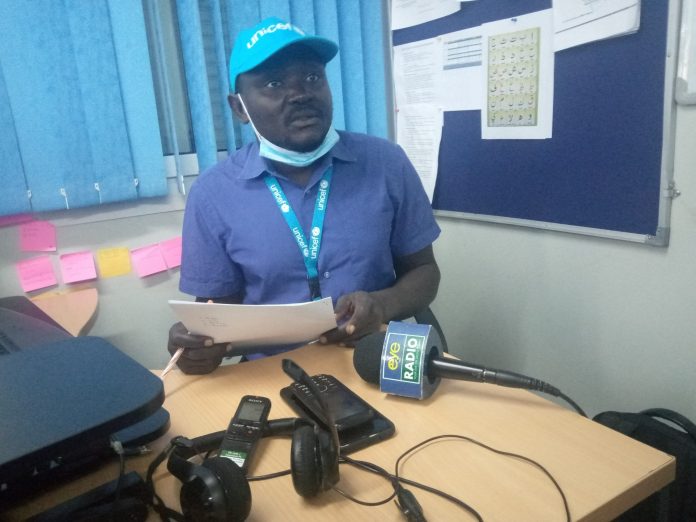By Ginaba Lino
Malakal Teaching Hospital and other health care centers are facing challenges of enough qualified doctors and nurses to provide good services, reveals UNICEF Acting Chief of field officer in Upper Nile.
Lagu Tolbert Unziku, chief field officer stressed that there are some health centers across the state lacking adequate number of registered midwives to run the World Bank project provided by UNICEF in Malakal.
“There is a lot of challenge like the issue of getting or recruiting qualified health care workers particularly midwives, doctors, and clinical officers across the state more especially Counties do not have adequate number of skills registered midwives. In other parts of the state, there has been other mechanism use to recruit skilled health workers so this is a key challenge for this program.”
Unziku regrets lack of health institute in Upper Nile which leads to inadequate qualified doctors or nurses in Malakal town and it affects the project which they are providing to the state.
He adds that some of the qualified doctors and nurses walk away to look for greener pastures because the project cannot provide for them what they need.
With the increasing population South Sudanese who are returning back from the neighouring Countries like Ethiopia, Sudan and others, the project don’t meet the needs of the populations and it affects the project “Acting Chief of field officer”
“We have also issues of increasing population, in most parts of the state now when peace came, and clam came in most areas insecurity stop, many of the returnees from Ethiopia, Sudan and other neighouring Countries came back so this is putting a lot of pressure on the existing services. So the supplies that are distributed are no longer meeting the needs of these ever increasing populations so this is one of the other challenges this program faces.”
Meanwhile Sunday Chal, a midwife working at Malakal Teaching Hospital, states that Malakal teaching hospital is facing a lot of challenges specially the issue of midwives
“Actually we have a lot of challenges in hospital; we don’t have enough midwives in Malakal teaching hospital also lack of enough drugs in the hospital and also Malakal teaching hospital is not well organize like before because before there was department for those affected by accident, place for children but now those things are not ther.”
Chal calls on the partners to improve on their incentives because it is very hard for those having families to provide for them something even for breakfast.
“I hope that they will look into our problems which we are in because it’s not easy for us to work since morning without breakfast and lunch then you goes back sometimes we don’t have transport so it’s not easy, if we have some money which can sustain life it will help a lot.”
She appreciates UNICEF for the Wald Bank project they brought to help the people of Upper Nile.
Chal advises that other partners should support the project so that they continue providing the services.
The World Bank and UNICEF set up a unique partnership in South Sudan to support access to basic life-saving child and maternal health services across the Country.

